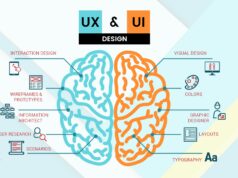
The digital era has transformed web developers into indispensable resources for businesses across a myriad of industries. This heightened demand has catalyzed a shift in recruitment methodologies, placing a significant emphasis on the implementation of specialized assessments. These tests are designed not only to streamline the hiring process but also to ensure the acquisition of the most skilled and innovative web development professionals.
Given the rapid technological advancements and the increasing reliance on digital platforms, companies are recognizing the necessity of having a robust online presence. Web developers play a crucial role in this regard, building and maintaining websites and applications that align with business goals and user needs. Their work directly impacts customer engagement, user experience, and ultimately, the success of the company in the digital marketplace.

The Imperative for Web Developer Assessments in Talent Acquisition
Web development, as a profession, demands a unique combination of skills. Beyond the foundational requirement of technical knowledge, a successful web developer must exhibit a high level of creativity to design engaging and intuitive user interfaces. They also need strong problem-solving abilities to tackle the complex challenges that arise in web development projects.
Recognizing these diverse skill requirements, the modern recruitment process for web developers has evolved to include comprehensive and practical assessments. These evaluations are meticulously designed to test a candidate’s abilities in various critical areas:
- Technical Expertise: This includes assessing knowledge of programming languages, frameworks, and tools essential for web development. Tests often include hands-on coding tasks, debugging exercises, and architecture design challenges.
- Creativity and Design Acumen: Candidates are evaluated for their ability to design aesthetically pleasing and user-friendly interfaces. This may involve mock-up designs, user experience (UX) planning tasks, or critiques of existing designs.
- Problem-Solving Skills: Real-world problem scenarios are presented to gauge a candidate’s analytical skills and their approach to solving complex issues. This aspect of the assessment looks at how candidates strategize, prioritize, and execute solutions.
- Adaptability to New Technologies: Given the rapid pace of technological change, assessments may include tasks that require candidates to learn and apply new tools or frameworks, testing their ability to adapt and learn quickly.
These comprehensive evaluations serve a dual purpose. For employers, they provide a reliable measure of a candidate’s readiness and potential to contribute effectively to the company’s web development projects. For candidates, these assessments offer an opportunity to showcase their skills and adaptability to real-world challenges, setting the stage for a rewarding career in web development.

Exploring the Diversity of Web Developer Evaluations
The evaluations used in the recruitment of web developers are diverse and multifaceted, reflecting the varied skill sets required in the field. These assessments are meticulously tailored to measure proficiency in specific areas of web development, such as front-end, back-end, or full-stack development. This comprehensive approach ensures a well-rounded evaluation of a candidate’s capabilities.
- Coding Tests: These are designed to assess a candidate’s programming skills. They often involve writing code in real-time, solving programming puzzles, or debugging existing code. This helps in understanding the candidate’s proficiency with syntax, logic, and their ability to write clean, efficient code.
- Project-Based Tasks: Here, candidates are given mini-projects or tasks that mimic real-world scenarios. These tasks can range from developing a small application to adding features to an existing project. This type of assessment is particularly effective in evaluating a candidate’s ability to manage a project lifecycle, work with deadlines, and apply their technical knowledge in a practical setting.
- Algorithmic Problems: These problems test a candidate’s logical thinking and problem-solving skills. They often require candidates to devise algorithms to solve complex computational problems, which is crucial in back-end and full-stack development roles.
- Web Technology Questions: Candidates may also be quizzed on various web technologies, frameworks, and practices. These questions can cover a wide range of topics, from basic HTML/CSS to more advanced concepts in JavaScript frameworks, server-side programming, and database management.
Benefits of Web Developer Tests in Recruitment
- Precise Skill Assessment: These tests are crucial in evaluating the specific technical skills required for a web development role. They provide clear insights into a candidate’s abilities in coding, design, and problem-solving.
- Efficient Screening: By using these assessments, recruiters can quickly identify candidates who meet the technical requirements of the role, thus streamlining the recruitment process.
- Enhanced Hiring Quality: These tests help ensure that the selected candidates have the necessary skills and competencies, leading to higher productivity and job satisfaction.
- Bias Reduction: Standardized tests provide a fair and objective platform for evaluating candidates, which helps in minimizing unconscious biases that can occur in the hiring process

Innovations in Recruitment
Recruitment practices have evolved a lot and diversified its boundaries by implementing innovative strategies across different digital platforms like Hirenest. These innovatory tactics enables the users to modernize the recruitment procedures through incorporation of specialized web developer assessments and testing strategies. By offering flexible and up-to-dated tools and resources, these forums make it easy for recruiters to extensively evaluate and select potential candidates as per project’s needs as well as company culture. These innovations would serves as a major milestone in streamlining the overall hiring principles; as it enables the recruiters to evaluate the skills by incorporating technology.
Challenges in Assessing Web Developers
The field of web development is dynamic, with new technologies and industry standards emerging regularly. This rapid evolution presents significant challenges in assessing web developers:
- Keeping Pace with Technological Advancements: One of the main challenges is ensuring that assessments stay relevant with the latest technologies and practices. This requires continuous monitoring of industry trends and updates to evaluation materials.
- Evaluating Problem-Solving and Critical Thinking: Beyond assessing coding proficiency, it’s crucial to evaluate a candidate’s ability to think critically and solve complex problems. This involves creating scenarios that mimic real-world challenges, requiring candidates to demonstrate their analytical and strategic thinking capabilities.
- Balancing Technical and Soft Skills: Web developers need a blend of technical skills and soft skills like communication, teamwork, and adaptability. Finding the right balance in assessments to evaluate these diverse competencies can be challenging.

Best Practices for Web Developer Tests
- Alignment with Job Specifications: Customize tests to match the specific skills and technologies relevant to the job role. This ensures that candidates are evaluated on skills that are directly applicable to their potential responsibilities.
- Varied Evaluation Techniques: Use a mix of coding tasks, problem-solving exercises, and theoretical questions to assess different aspects of a candidate’s abilities. This variety helps in getting a more comprehensive understanding of the candidate’s skills.
- Up-to-Date Content: Regularly update the assessment content to reflect the latest web development trends and technologies, ensuring the tests remain relevant and effective.
- Balanced Duration: Design evaluations that are comprehensive but also respect the candidate’s time. Overly long assessments can be daunting and may not yield additional useful insights.
- Constructive Feedback: Provide candidates with detailed feedback post-assessment, highlighting their strengths and areas for improvement. This not only aids in their professional development but also enhances the candidate experience.
- Fairness and Accessibility: Ensure that the assessments are fair and accessible to candidates from diverse backgrounds and with different abilities. This may involve providing accommodations and ensuring that the tests are free from bias.
- Complementary Tools: Combine automated assessments with personalized elements like interviews and portfolio reviews. This approach provides a more holistic view of the candidate’s abilities.
- Privacy Respect: Treat all submissions and candidate data with strict confidentiality to maintain trust and integrity in the process.
The Future of Web Developer Hiring
As the field of web development continues to evolve, the role and importance of effective evaluations in the hiring process will only grow. These assessments are key to identifying candidates with the right blend of technical skills, creativity, and problem-solving abilities. Companies that successfully adapt their recruitment strategies to include comprehensive and up-to-date assessments will be better positioned to hire the most qualified professionals for their web development needs. This evolution in hiring practices is crucial for organizations aiming to thrive in the digital era, ensuring they have the talent necessary to drive their digital projects and initiatives forward.









